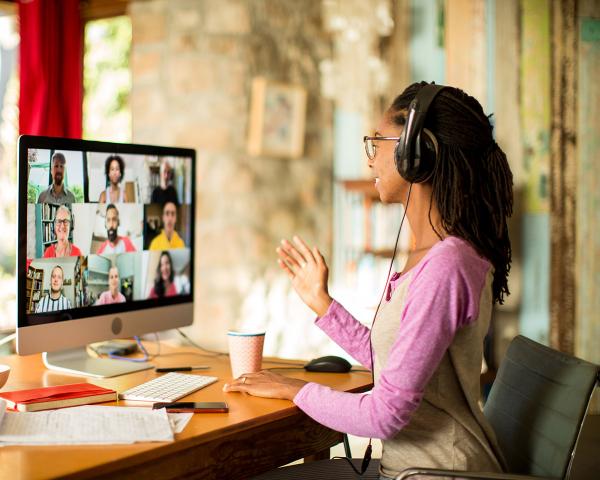Engaging Students Online
Minneapolis College is poised for online learning. Well known for its award-winning faculty, the College quickly shifted to this learning model in the spring with the onset of COVID-19. More than 50 faculty spent 2 weeks this summer fully immersed in training in how to teach online to ensure students continue to receive a high-quality education whether they engage in person or in a virtual environment.
“The College made decisions early on to keep students, faculty and staff safe,” said Gail O’Kane, vice president of Academic Affairs, who emphasized the College’s goal to provide the best education possible to students. “This meant moving as many courses or portions of courses as possible to remote delivery. This fall, about 75 percent of courses the College offers will be all or mostly online, 20 percent will be delivered with both online and face-to-face components (blended/hybrid courses) and 5 percent will be face-to-face.”
Making the decision early ensured students could be confident that the courses they registered for wouldn’t shift delivery mode as fall approached. This also gave the College time to prepare to deliver the best distance learning experience possible, including spending $250,000 on new technology and faculty training to support high-quality teaching. According to O’Kane, the College invested in training that focused on best practices in online teaching and ensured technology was easy to navigate and allowed for creating community in the classroom, humanizing the experience.
“To further encourage student success, we are offering a short course on how to be a successful online student,” said O’Kane. “The comprehensive course will teach students how to use the College’s technology so they can fully engage in everything their instructors have to offer.”
Thinking about the whole person, Minneapolis College offers an affordable laptop leasing program and extended IT help desk hours so students have access to technology and supportive services if they need it. Through a grant from the Minnesota Office of Higher Education, the College will also be hiring a digital literacy tutor to serve students and will be providing resources to help students afford Internet access.
Across the College, instructors are finding creative ways to engage students online. Nursing faculty Melinda Huston literally created a nursing lab in her home so she can provide visual instruction during this unprecedented time. English faculty Gil Creel engages students in learning the English language through a computer game and in Maran Wolston’s logic course, students solve challenging problems at home, mastering their critical thinking skills.
Recognizing the challenges online learning can bring to science education, Renu Kumar, biology faculty, invited microbiology instructors from across Minnesota State to share ideas, collaborate and improve systems for online learning. “Hands-on experience is essential for our students,” said Kumar, who recognized the innovative faculty across the system and at Minneapolis College. “Science faculty at Minneapolis College created simple experiments, modifying existing protocols, to give students the opportunity to conduct science experiments safely in their own homes. Since a majority of our students will transfer to 4-year institutions, having this experience is imperative.”
Further emphasizing the adaptability of the College, Dean Ben Weng shared how Kumar continued to engage students in undergraduate research despite COVID-19 through interactive sessions supported by the National Science Foundation-funded Louis Stokes North Star STEM summer research program.
“During the research experience, students took an epidemiological approach to understand the incidence, distribution, morbidity and control of infectious disease and subsequently presented their work at a virtual symposium,” said Kumar. “Additionally, the Minnesota State Undergraduate Research Initiative Grant for 2019-2020 continued through the pandemic and 23 projects have already been completed by faculty and presented virtually at the symposium.”
